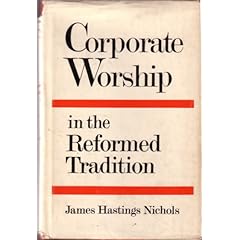“I first went to greet Hrothgar in his ring-hall, where Healfdene’s kinsman promptly assigned me a seat by his son and heir once my purpose was made plain to him. The company was joyous; never in my life have I heard under heaven’s vault such merriment of men over mead in the hall! The noble queen, the pledge of peace between nations, cheered the young clansmen by giving golden clasps to various ones before she sought her seat. Hrothgar’s daughter betimes carried the ale-cup to the princes in turn—I heard these hall-companions say when she offered carvings of gold to the warriors that her name was Freawaru. The gold-adorned maiden is pledged to the merry son of Froda. This seems sagacious to the keeper of the kingdom, that friend of the Scyldings: he deems it wise to wed the woman and ward off a massive blood-feud. But seldom does the slaughtering spear sleep for long, even though the bride is fair!
“The Heathobard lord will not well like it when he and all his liegemen see a Danish thane in that stalwart crowd accompany the lady in their hall, and upon him the ancient heirlooms gleam; hard and ring-covered, they are Heathobard’s treasure—weapons that they once wielded well until they lost loyal liegemen and their own lives in the game of battle. Then, while drinking ale, some old spear-fighter will gaze upon this heirloom and think of spear-brought death—he is somber and his heart is heavy—and he tries the temper and prods the soul of the young hero, awakening war-hate with words like these:
“ ‘Can’t you, my comrade, recognize that sword which your father carried in his final battle while wearing his helmet, when the Danes killed him, and the stout Scyldings took the field after the carnage and Withergild’s death? Now, the son of one of those murdering Danes, proud of the loot, walks into our hall and boasts of the slaughter; he’s wearing the treasure which you by right ought to own!’
“So he urges and goads him at every turn with galling words until the time comes that Freawaru’s thane must sleep in his blood, losing his life to sword-bite for his father’s deed. But the liegeman flies away, alive, to the land he knows. And thus the princes’ oaths on both sides would be broken when Ingeld’s breast swells with war-hatred, and the love for his wife grows cooler after those billows of care. So I do not highly esteem the Heathobard’s loyalty, nor do I deem their alliance with the Danes sincere or their friendship firm.
via Beowulf Text – Chapter XVIII.
So I’ve been listening to Seamus’ translation of Beowulf in audio (except I fell asleep last night and missed the beginning of the conflict with the Mother) and heard this aside (?) this morning.
It makes sense to deal with the social divisions of tribe and clan by intermarriage. It even seems nice to see women as ambassadors of peace, though Beowulf’s doubts that they are really enough make me worry.
Of course, ultimately it did work. Virtually all Western Europe and more became one extended family of rulers. But that explains the myth of the peasant wife for the king. The ruled feel like they need to find a way to make peace with the tribe of rulers. The locals feel that they are being snubbed for the sake of some foreign princess somewhere.
And, if a ruler does not really love his people, then a family spat with an in-law isn’t really going to be any more peaceful than a blood feud. Unless he leads his men, he is more or less playing chess with their lives.
Not sure where this was going. I just did not expect to encounter this in Beowulf and it has my mind buzzing a bit.
POSTSCRIPT: I said it “seems nice to see woman as ambassadors of peace.” Of course, the idea of daughters being pawns in realpolitik doesn’t seem nice at all. I meant to mention that possibility and register my disgust. Now I have.


